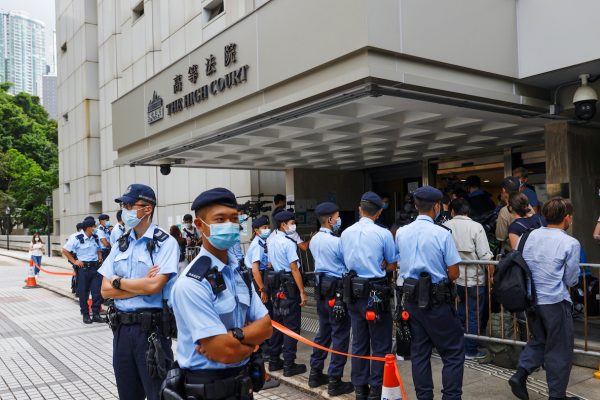Beijing is pushing for greater cultural integration between Hong Kong and mainland China through a new state enterprise, which will oversee mainland Chinese media, publishing and cultural operations in the Special Administrative Region. Its first move was buying into Phoenix Television and becoming its largest shareholder.
Since the early 2000s, taking advantage of greater freedom under the ‘one country, two systems’ arrangement, critical citizen and professional news media emerged on digital platforms in Hong Kong. Meanwhile, digital media launched by Beijing-supporting individuals and state media have also spread. The National Security Law is now posing unprecedented difficulties for the remaining spaces of independent journalism in Hong Kong. Post852 has ceased its news operation and D100 radio suspended one of its channels after one of its hosts was arrested on national security charges.
Other independent media outlets are continuing uncompromised, but some fear not for much longer.
On the second anniversary of the 21 July Yuen Long attacks, Stand News, the largest news provider in Hong Kong on social media, published an explosive video report that provided evidence that the attacks were carried out by thugs for hire. But when two pro-Beijing news outlets in Hong Kong contradicted the video report, Stand News had to re-emphasise that their investigation was limited to scrutinising public communications on social media and did not include the private social media group that the contradictory evidence was said to come from.
This case illustrates the increased demand being placed on critical news reporters in Hong Kong. Every single detail must be correct, otherwise the reporter and the organisation may land in trouble. The government is already mulling over legislating against fake news and misinformation.
Sourcing news is becoming more difficult, especially for news providers that focus on systemic issues rather than accidental occurrences. As civil servants pledge loyalty to the government, and trade unions and political groups are disbanded, the news agenda easily becomes dominated by the government and large corporations.
This operational environment is what budding journalists in Hong Kong face. The Hong Kong Journalists Association has traditionally supported the professional development of journalists, but its legitimacy is under challenge by China’s party media and Hong Kong’s security chief. These difficulties are not yet deterring young people from joining journalism programs. But will there be space for critical journalism when they are ready to publish?
After its collective resignation in late-2020, the China reporting team of i-Cable News found a new home in Citizen News. But they no longer have any correspondents stationed in Beijing or Guangzhou.
In the face of uncertainty, Stand News has taken down columns and opinion pieces published before May 2021 from its website for the safety of contributors and stopped accepting donations.
Initium, winner of multiple awards for its in-depth reports about mainland China, Taiwan and Hong Kong, announced in early August that it would relocate its headquarters from Hong Kong to Singapore. Despite Singapore not being known for press freedom, the move brings the news outlet beyond the immediate control of the target of its critical reports. It says, ‘mainland China and Hong Kong will remain our focus’.
Chinese-language news providers in Hong Kong primarily target local audiences, but the plight they face has ramifications for the larger news ecosystem. Market-oriented journalism in mainland China used to be bold and the news media in Hong Kong provided support by publishing sensitive stories that their counterparts across the border shared with them. Those days are gone.
The remaining independent news providers in Hong Kong are still covering China critically. The Citizen News China team, for example, reported the sentencing of Chinese citizens who exposed details about Xi Jinping’s family on the internet, although mainstream media shied away from the story. But the editor, Szeto Yuen, said in May that he estimated the remaining freedom might all end soon.
When that happens, the China and Hong Kong coverage of international media will suffer as news reports published in Hong Kong provide materials for media organisations elsewhere. The expulsion of China correspondents from Western news media outlets only makes the role of Hong Kong’s media more important.
Globally, Chinese-language news is dominated by Chinese state and state-partnered media. While they target the Chinese diaspora, the majority being emigrants from mainland China, recent outward migration from Hong Kong may open opportunities for the development of Chinese-language journalism oriented towards Hong Kong people in other countries.
With its press freedom, Taiwan has the potential to become the future base of independent journalism about the greater China region. More China correspondents of western media have moved to Taiwan. But so far, Taiwanese media has focused on the relationship between Taiwan and mainland China rather than the dynamics inside China or Hong Kong. This will have to change before it can play a bigger role in China news reporting. The risk of forced unification by Beijing, of course, is its ever present vulnerability.
Joyce Y M Nip is Associate Professor in the Department of Media and Communications and Department of Chinese Studies at the University of Sydney.

